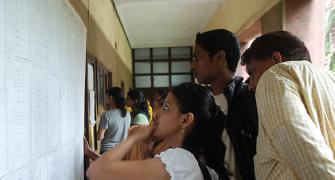Heard of singletasking?
Focus on one thing. Get it done and move on to the next.

At my last job, I had a colleague who was asked to sit at office for very long hours.
He was extremely good at what he did and in the hopes of extracting the most amount of work from him, our manager used to make him wait until the last task for the day for finished.
During a casual conversation, my colleague mentioned to me about how he hadn't spent time or even seen his three-year-old daughter in days.
He would be so exhausted at the end of every day and would wake up only after she left for play school. And by the time he got back home, she would have slept.
As we worked six-day weeks, the only time he got to relax and spend with his family was a Sunday.
Being deprived of some much-needed family time and me-time, was he being more productive just because he was at work all day?
I disagree, and so does a Stanford study which says that the law of diminishing marginal returns applies to productivity at work, too.
The study says that after the first 50 hours a week, your rate of productivity begins to reduce.
People who work more than 70 hours a week get the same amount of work done as those who work for 55 hours. So being busy doesn't translate to being more productive.
So, how can we get more work done?
In the book Scrum: The Art Of Doing Twice The Work In Half The Time, author Jeff Sutherland gives us the example of his one-time employer Scott Maxwell, founder of venture capital firm OpenView Venture Partners.
Scott introduced him to what Jeff calls the 'Maxwell Curve', which showed that when people work beyond a certain threshold, working more hours stopped producing more output.
Scott's idea was simple -- he wanted his employees to work fewer hours not because he was worried about their work-life balance but because he wanted to get more work done.
He said that people get distracted and begin distracting others, leading to bad decisions and mistakes that would require more time and effort to correct.
The key is to work 'smarter', not harder.
Once you stop procrastinating, clear off distractions and adopt smarter ways to work, you will see that you can accomplish, like Jeff claims, twice the amount of work in half the time. Here are a few tips that can help you in this direction:
Avoid distractions
In an office set-up, you will notice that it is not you who is always to blame for wasted hours.
Inconsequential social media surfing in the name of research set aside, there might be other factors that are distracting you.
Colleagues who cannot stop chatting with you, the TV that is always on and unwanted meetings which serve no real purpose -- all these could have an impact on your productivity.
Speak up if you are facing any such distractions or constant interruptions at work.
Let your managers and colleagues know about them and try to eliminate them.
Do not feel shy about voicing out your concerns, because studies have found that even a three-second distraction can double the number of errors you make at work.
Stop multitasking
The debate between the effectiveness of multitasking versus doing just one thing at a time or 'singletasking' as it is called today has been ongoing.
Devora Zack, author of the book Singletasking: Get More Done–One Thing At A Time, calls multitasking a myth.
The brain cannot be at two places at once, she says.
So what we call multi-tasking is what neuroscientists call task switching, and it has been proven that going back and forth between two things not only lowers productivity by 40 per cent but it also shrinks our brains.
When we multitask we tend to lose focus and get lost.
How many tabs have you got opened while you are reading this story?
Three, eight, seventeen -- whatever your count is, it's never just one, isn't it. Yes, your e-mail tab also counts.
So stop trying to be at different places doing different things at once.
Focus on one thing and get it done and move on to the next. Watching this video might inspire you more to do so.
Start saying no
Understand that there is only a certain amount of work that you can get done on a given day.
So, you need to learn to say no to additional work or when you know you are not the best person to get something done.
It can be exciting to take on more challenges or help others share their load, but it is not going to make you productive.
It only increases the chances of making you feel resentful, tired and frustrated.
Let the person you say no to understand why you cannot take up that work. Suggest an alternative.
If you find yourself faced with work that lies outside your domain, delegate it to someone more suited to it.
Remember that agreeing to help the person now and then delivering shoddy work is worse than saying no upfront and suggesting feasible alternatives to them.
Take breaks and disconnect
Recently, my husband worked four full weeks without a day off.
Every day, he came back home more tired than the previous day.
At the end of the month, he took a day off and slept for the whole day.
By the end of these unimaginable work days, he looked like a zombie and had difficulty in even making small talk.
There is a reason we have weekends and why we need to take breaks from work.
Although it constitutes only two per cent of total body mass, the brain consumes 20 per cent of the body's calories.
We somehow forget to include it as a part of physiology and always talk about just physical exhaustion.
The brain tires well before your body does. It needs relaxation and refuelling. So, do yourself a favour and stop working on weekends.
When you are at home, detach yourself completely from work-related tasks. This will let you recuperate, reflect and refocus on your work when you get back to office.
No matter what you do or how hard you try, there is a limited number of sound decisions you can make in a single day.
By making more and more decisions, you only erode your ability to regulate your own behaviour.
Nobody is concerned about how much time you spent doing something, the outcome is what matters. So isn't it better to spend less time, work smarter, be more productive and deliver better results than slogging for no reason?
Lead image used for representational purposes only. Image: Charles Platiau/Reuters










